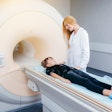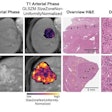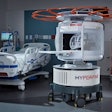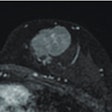Use of MRI may help predict which adults with mild cognitive impairment are more likely to progress to Alzheimer's disease, according to a study published online April 6 and in the June issue of Radiology.
Lead study author Linda McEvoy, PhD, assistant professor in the department of radiology at the University of California, San Diego School of Medicine, said being able to better predict which individuals with mild cognitive impairment are at greatest risk for developing Alzheimer's would provide critical information once disease-modifying therapies become available.
Previous research has shown that individuals with mild cognitive impairment develop Alzheimer's disease at a rate of 15% to 20% per year, which is significantly higher than the 1% to 2% rate for the general population.
The researchers evaluated a baseline MRI exam as an initial point of measurement and a second MRI scan performed one year later on 203 healthy adults, 317 patients with mild cognitive impairment, and 164 patients with late-onset Alzheimer's disease. The average age of the study participants was 75 years.
McEvoy and colleagues used MRI to measure the thickness of the cerebral cortex, which plays an important role in memory, attention, thought, and language, and observed the pattern of thinning to compute a risk score. One of the characteristics of Alzheimer's disease is a loss of brain cells, or atrophy, in specific areas of the cortex.
The group saw a pattern of cortical thinning that indicates a patient is more likely to progress to Alzheimer's, said McEvoy. Using a single time point, the baseline MRI, researchers calculated that the patients with mild cognitive impairment had a one-year risk of conversion to Alzheimer's ranging from 3% to 40%.
Including the one-year data improved risk estimates, according to the researchers. By combining results of the baseline MRI and the MRI exam performed one year later, researchers were able to calculate a risk of disease progression ranging from 3% to 69%.

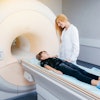
.fFmgij6Hin.png?auto=compress%2Cformat&fit=crop&h=100&q=70&w=100)



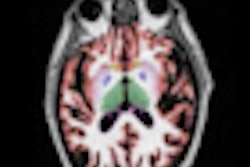

.fFmgij6Hin.png?auto=compress%2Cformat&fit=crop&h=167&q=70&w=250)
